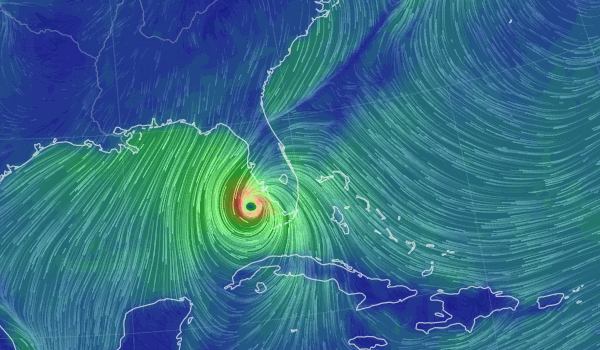Hurricane Ian that is about to batter the west coast of Florida appears to have spared the major US oil refineries along the Gulf Coast, although the inhabitants of the southern state of the US are not out of the woods.
Hurricane Ian that grew into a Category 3 storm - the highest is Category 5 - while moving over the tropical island, Cuba, will make
landfall in Florida today, with mandatory evacuation orders in certain parts are in place.
The path of the hurricane, taken from a very reliable model, shows it is turning towards Florida, deviating from the path that forecasters initially thought it would take. In response, some refineries took cautionary measures to shut down the refineries and oil facilities, fearing a direct hit.
Fortunately, Hurricane Ian has bent northeast while sparing the oil facilities in question; in September, last year, the oil refineries along the US Gulf coast took a direct hit from Tropical Storm Nicholas that resulted in chaos in the supply chain in the energy markets. It, actually, led to a significant rise in the price of crude oil too.
With the change in the path of Hurricane Ian, investors in the energy sector can breathe a sigh of relief, as there are already plenty of things to lose sleep over: the conflict in Ukraine shows no sign of coming to a quick end; on the contrary, there are plenty of signals that it could even get worse with the nuclear scenario on the horizon; the pipelines that are crucial to supply Europe with gas in the coming winter months, meanwhile, have been mysteriously damaged.
In the UK, meanwhile, the pound is falling against the US dollar and it creates anxieties among investors at many different levels. On a positive note, the UK is not facing an imminent gas shortages that the members of the EU face with, as the former is not reliant on Russian gas.
As far as EU is concerned, although the members are hopeful that the storages of natural gas will be 80% full by November 1, if the winter temperatures plummet the supply issue may start haunting the EU policymakers over the complacency; in short, they are at the mercy of nature in the coming few months.
As the fear of Hurricane Ian affecting the oil supply has subsided with its changing path, the price of crude oil fell again in the markets today, clearly being determined by the combination of slow economic growth, rising interest rates, strong dollar and of course, evolving geopolitics in Europe.
As of 11:20 GMT, the price of WTI, Brent and LNG stood at $78.19, $86.01 and $6.73 respectively; high gas prices seem to be keeping the prices of crude oil at the current level, stopping it from falling precipitously.
Meanwhile, there are reports that Chinese demand of crude oil has picked up the momentum again, as the authorities managed to keep the threat of Covid-19 at bay, thanks to the rigid Covid-zero policy.
Since the price of LNG, liquified natural gas, is still substantially high despite recent falls, the possibility of an oil crash is still low.
If the price of crude oil stays at this level, it is good for both consumers and producers, as the upward movement in prices in recent months clearly led to a slow economic growth that in turn brought down the demand.







